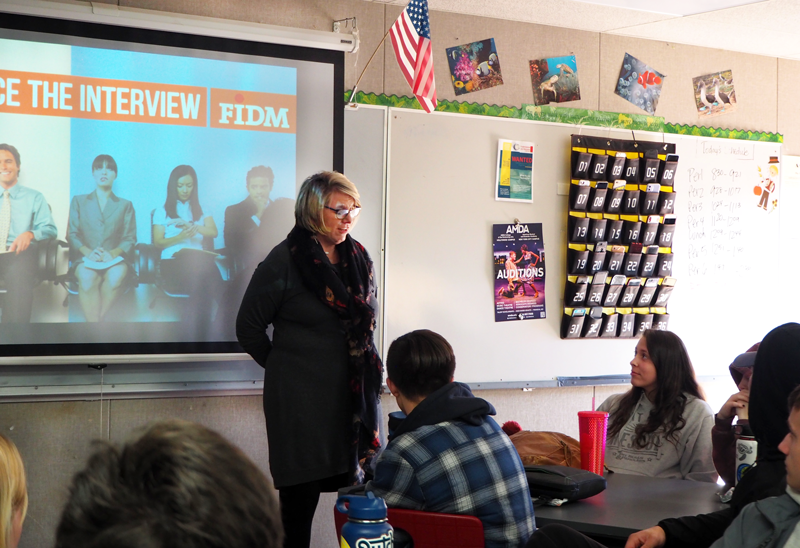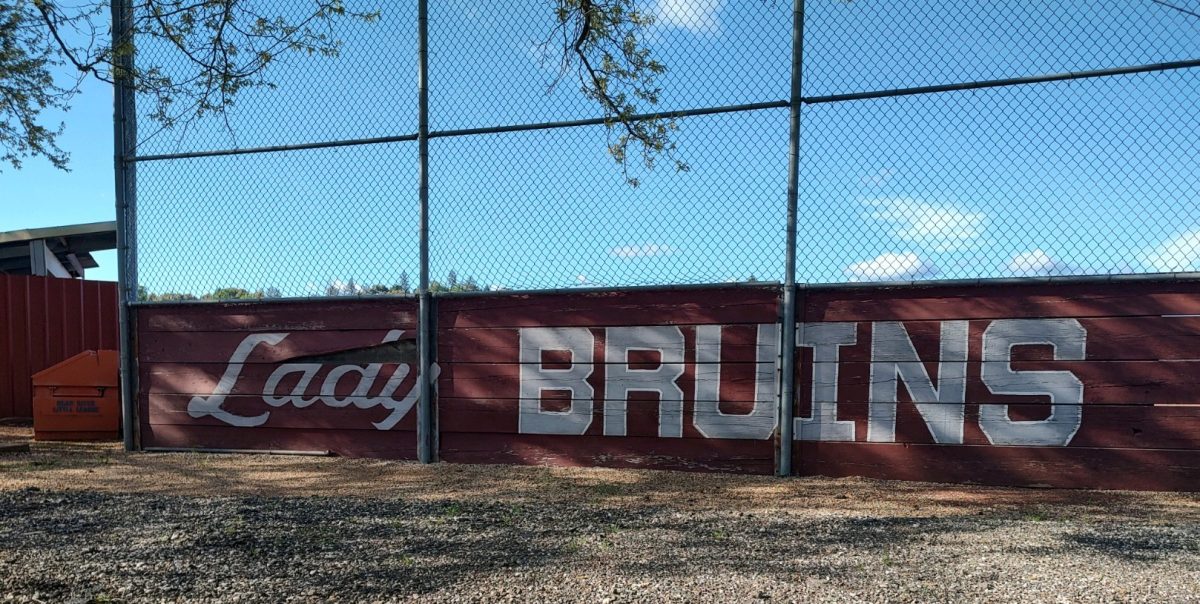Seniors at Bear River and everywhere else have a lot of decisions to make in the upcoming months — the most obvious being their plans for post-graduation. For those choosing to go to college, hundreds of options are available for application, but one valuable choice can often be overlooked.
Junior college, or community college, is a college that results in an earned Associate’s Degree, but not a Bachelor’s Degree. It is often utilized by students who wish to transfer to a four year university, generally after 1-3 years, and offers a wide variety of courses to prepare them for this transfer. Each year, a large percentage of the Bear River graduating class goes to Sierra College, our local community college. So why is it that, if you ask a class of seniors if they’re considering Sierra as a post high school option, almost none of them will raise their hands?
“I’m so glad you are asking these questions, I think this is important,” said Counselor Mary Buhr. “I had a parent one time confront me about not thinking highly enough of her daughter… I recommended a community college that would’ve been easy for anyone to get into, but it had a good program in the area she wanted to go into. Because I recommended it, the parent was upset that I didn’t think that her daughter could achieve higher than that, she was like, ‘Our expectations are much higher than just that.’”
She also spoke about the students’ perspective of it, saying that she heard a lot of the same downgrading of the quality of community colleges from them.
“Do I hear it from the kids?” she said. “Yes, a lot of times a lot of students would be talking down about the community colleges, ‘It’s just like high school extended’ is the kind of the thing that they say, ‘it’s just like another two more years of high school.’ But it’s not that.”
Some students have, however, started to realize the value of this choice. Becca Reese, a senior, said that she plans to attend Sierra for two years before transferring to a university.
“I think a lot of people think that junior college is for kids who maybe aren’t as smart or don’t know what they’re going to do, but in reality, you can get so much out of junior colleges,” said Reese. “ … It’s for kids who are definitely career based, and I definitely think that the stigma needs to go away, and people need to step up and show the facts of how junior college can be.”
So what are the facts? What makes junior college a valuable choice?
“Money,” emphasized Mrs. Buhr. “It is a huge financial benefit to go to a community college, especially since there’s this initiative that you can get to your community college for free, and it’s a great way to be able to get your first two years of education and then transfer to a four year. Definitely financial.”
Mrs. Buhr also recognized that often, students who go straight into a four-year and change their major halfway through can end up wasting money.
“Statistics show that students will change their major at least three times during college years,” she said. “… Say, for example, you went to a particular four year and after you’re there for your first year and taken some courses there, you change your major, and it might not be a major that’s offered at that school. Then you’d have to transfer schools.”
She went on to explain the General Education requirements that can include history, math, and English courses.
“Most programs… have you take General Education requirements,” she said. “… So if you take those Gen Ed requirements at a community college while you’re still searching out what kind of career path you want to choose, a community college makes a great option because you can get the same courses that you would be taking at a four year, again, for much cheaper … You could do that exploration without wasting any money.”
Mrs. Buhr also emphasized the high quality of community college courses, and addressed concerns that academics could be subpar.
“A community college has to meet certain criteria to be certified, they have to go through an evaluation process, so they’re good quality schools,” she said. “I always encouraged kids if you have never been on a community college campus… take a visit, and when they come back I think they have a different appreciation. You’re taking classes that are the same caliber of classes academically that you would be taking at a four year.”
She also explained that even if you transfer into a four year as a junior, the diploma you receive when you graduate will only reflect the university that you exit from.
What about students on the other end of the spectrum, who are worried that they’re unprepared for the academics of college?
“To be honest, it’s very difficult to get into the UCs (Universities of California) and CSUs (California State Universities),” said Mrs. Buhr. “And what I’m finding is that the average GPA for entrance into a UC is above a 4.0, so it had to be a person who took weighted classes and got high grades and then scored well on their SAT. So, it’s extremely selective and competitive to get into those UCs and CSUs.”
Still, UCs and CSUs offer some of the best in-state post-secondary education, as well as boasting amazing athletics and thriving college communities. For students who want to have the opportunity to experience and take part in these things, but are not initially accepted to the school, community colleges offer Transfer Admission Guarantee (TAG) agreements, wherein students can go to a junior college, complete courses they have arranged with a select list of four year universities, and if they meet the requirements they are guaranteed entrance.
“That just seems like a win-win,” said Mrs. Buhr. “It just seems like a great way to get into a university if your grade point average isn’t quite up to that over 4.0. B-students can do well in college, students with a 3.0 grade average or 2.8, 2.9, they can do well in college.”
Yet another concern often brought up regarding the potential pitfalls of junior college is a lacking social environment. To a certain extent, this is valid, because most students attending local community colleges do not live on campus, making the school feel a little less like home. However, Sierra College does offer a huge array of social events for students to explore.
“Really, it would offer the same kinds of things socially that you would expect at any college,” Mrs. Buhr said. “Sports, clubs, activities, involvement, you can get involved to whatever degree you want to.”
The official Sierra College website gave some examples of what their campus social culture is like.
“At Sierra, education extends beyond the classroom,” it says. “As a cultural hub for the region, community members and students enjoy live theater and music events, forums and public lectures from renowned experts, special district-wide celebrations like Earth Week, Dino Day and athletic competitions by our nationally ranked teams.”
They went on to emphasize the talent found in their athletic programs.
“Our athletes are leaders on the playing field and in the classroom,” it said. “With 18 intercollegiate teams and consistent post season appearances, we don’t just play, we play to be champions!”
Anna Larson, a Bear River Alumni currently attending Sierra College, described her experience running with the Sierra College Cross Country team.
“I didn’t plan on running after high school, but when I made the choice to go to Sierra College, I decided to just try it,” Larson said. “I’ve made countless incredible friends who’ve introduced me to new hobbies, adventures, and experiences.”
Of course, many four year universities are incredible institutions, and a good choice for certain students.
“If you’re super set in what you want to do and super passionate about it, just straight shooting what you want to do, getting somewhere where you’re comfortable, that’s one of the advantages,” said Reese.
Junior Connor McGehee, who plans to become a veterinarian and hopes to attend UC Davis, expanded on Reese’s mention of being comfortable where you are.
“Going straight to a four year, one of the pros of it is that you’re already at your college, and you don’t have to deal with the whole, ‘okay, I’m going to go to college, and then trying to move to another college eventually’,” he said. “You just start out straight at that four year. It could cost a little more, because you are taking the same classes you could take at Sierra, but you’re already there and you’ve already established your base of where you’re going to be for the next four years and you don’t have to deal with picking up and moving again.”
Interestingly, just as saving money can be an enticing reason to choose community college, money also has a part to play in the other option.
“One of the things is that many times universities offer excellent freshman scholarships,” said Mrs. Buhr. “They offer more freshman scholarships than they do transfer scholarships. There are certain scholarships that are available to you if you enter as a freshman and then they’re renewable every year after that. As a transfer student, you would not be eligible for those scholarships.”
She went on to offer additional advice to students weighing the two options.
“Sometimes you have to weigh the financial cost, and usually that’s for students who are in a certain bracket as far as your SAT scores, your GPA, things like that,” she said. “If you’re a high achieving student, I really think you should consider a four year, and compare the money they will offer you to go there, versus the free that it would cost you to go to community college. It might not be that much more expensive.”
As a senior who hopes to go straight to an Ivy League school, Lydia Fuller-Hall explained the reasoning behind her choice.
“I feel like it’s a lot better [to go straight to a four year] depending on what you’re trying to go into, because it’s more direct access into where you’re trying to go,” she said.
She went on to say that she doesn’t feel that a social stigma towards junior college is particularly prevalent.
“I feel like maybe there once was [a social stigma], but it’s slowly diminishing,” Fuller-Hall said.
McGehee had a similar, but slightly more complex opinion of how views on community college are changing.
“I feel like a lot recently there’s been a lot of push for kids to go to a four year, go to university, go to college, and not very many people have talked about the benefits of going to a junior college as much, and how it’s a lot easier for a lot of students,” he said. “I feel like a lot of students are starting to realize, ‘oh, hey, this might be a better option for me’, but a lot of the parents are still like, ‘hey, go to a four year, go to a four year.’”
Mrs. Buhr made a point to note that she still does believe that students should shoot for four year universities.
“I believe that community colleges are a great option for many students,” she said. “[But] four year universities are great, and if you are that caliber of student who has the high GPA and a high SAT score, then aim for the four year universities. Be prepared that you may not be accepted, but aim for it.”
Reese summed up her thoughts in a simple sentence.
“For some people who maybe want to explore more without needing to pay so much money, it’s definitely better to go to a community college,” she said.
As a generally high achieving student, I have been told countless times that I’m “too good” to go to junior college. However, I think that the benefits of this option need to be recognized, and normalized for all students, in terms of finances as well as simply for the purpose of intellectual exploration.



































